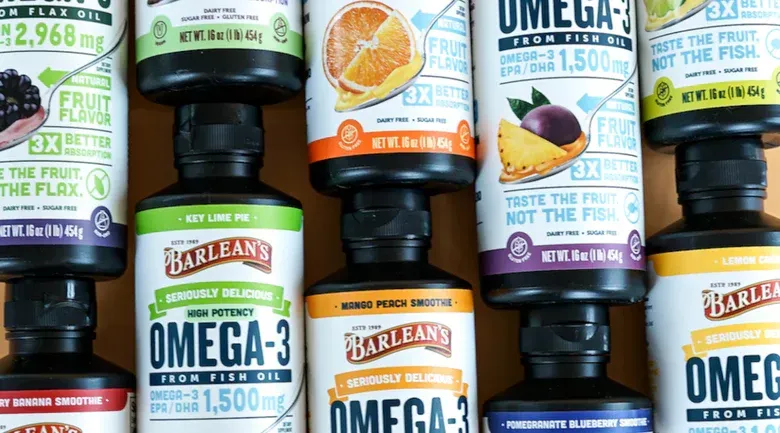Fish Oil or Flax Oil: Which is Right for You?
The scientific evidence is in—we all need Omega-3s. That's why they're called essential fatty acids. And, while there's no doubt that Omega-3s are critical for staying healthy, they cannot be made in the body. You must get them from your diet or supplements, but should you take flax oil or fish oil to get what you need?

The vegan option
For vegetarians and vegans, the answer is easy—flax oil is pressed from flaxseeds and it is chock full of the parent Omega-3 called ALA (alpha-linolenic acid). It’s the perfect choice for a vegetarian Omega-3. But what about everyone else? Should they use flax or fish?
It’s not whether people get Omega-3s from fish or flax, but how much Omega-3 they need. The answer is MORE!
Most people are Omega-3 deficient
Studies have shown that 95% of Americans are very deficient in Omega-3 fatty acids.1 In fact, according to study, Omega-3 deficiency is the eighth leading cause of preventable death in the US.2 Now that's serious! So how do we boost our Omega-3 intake to turn the tide away from deficiency?
Build your Omega-3 team of champions
Just like any team of champions, we need important Omega-3 team members to make the cut. We enlist EPA (eicosapentaenoic acid) and DHA (docosahexaenoic acid) forms of Omega-3 by choosing a reputable, potent fish oil and begin using it daily as directed. We also choose to eat fresh, cold-water fish like Pacific Salmon and Sardines (yes, sardines are super-rich in EPA Omega-3) whenever we get the opportunity.
Then, most importantly, we round out our team with a host of plant-based, parent Omega-3 from flax oil. Flax oil can be used in salad dressings, over steamed veggies and added into sauces, soups and smoothies. Ground flaxseeds can be used in baking, to add a crunch-factor to salads and, of course, mixed into a daily smoothie. In addition to packing a lot of Omega-3, these super seeds provide great fiber for better digestion. It's not one or the other, or one vs. the other; it’s both. Fish and flax oil work together as a team to get the job done.
Omega-6 vs. Omega-3
It’s been estimated that the average American consumes 20 times more Omega-6 than they do Omega-3. Omega-6 is a crucial member of the essential fatty acid family, but high levels and an unbalanced Omega-6 to Omega-3 ratio can negatively impact your health. Here are three easy ways that will get you on the right track to winning the real battle of too much Omega-6 vs. too little Omega-3.
• Read Labels: Omega-6s are abundant in packaged foods by way of Omega-6 dominant vegetable oils like corn, soybean or sunflower oil.
• Be Aware of Fast Food: Fast food is often deep fried in these Omega-6 dominant oils, which significantly increases your Omega-6 load.
• Increase Omega-3s: Consciously look for places to add flax oil into your diet. Add some fish-focused meals when you can, and take your fish oil supplement faithfully.
At the end of the day, we need to transform the conversation about Omega-3s. It’s not about the source; it’s about getting enough!
1. https://omegaquant.com/omega-3-status-average-americans
2. The Preventable Causes of Death in the United States: Comparative Risk Assessment of Dietary, Lifestyle, and Metabolic Risk Factors. PLoS Med Jnl 6(4): e1000058. July 2009.











